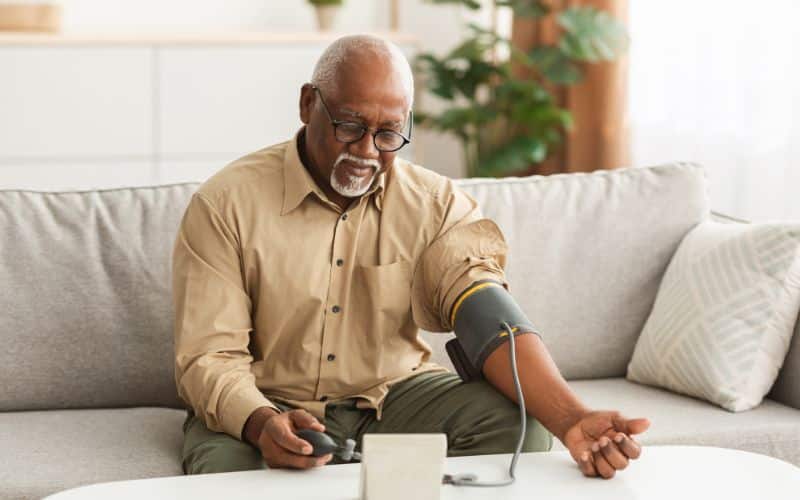


As your loved one ages, so does their risk of high blood pressure. The 2020 US National Health and Nutrition Examination Survey recorded that 74.5% of adults over 60 had high blood pressure. With over half of seniors experiencing high blood pressure, also known as hypertension, you and your aging loved one may be overwhelmed with concerns. 1+1 Cares is here to address your racing thoughts by answering the following questions you may have regarding high blood pressure.
High blood pressure is more prone to occur in older adults due to how the body changes with age; specifically, arteries get stiffer and cause blood pressure to rise.
High blood pressure is often known as “the silent killer” because it usually does not cause signs of illness you can see or feel. However, those with severely high blood pressure may experience the following symptoms:
If your elderly parent is not experiencing any of those symptoms, make sure they still regularly get their blood pressure checked as hypertension could still be a possibility.
While blood pressure is a common health problem for older adults, it can be controlled in most cases. If your loved one has high blood pressure, the first step you should take is to discuss with their doctor the best form of treatment for them. Treatment for blood pressure can vary by case, so they will have the best determination of how their loved one can get better and if they should go on medication.
Besides medication, there are additional steps to lower the blood pressure your loved one should take. They can lower their blood pressure naturally by eating a heart-healthy diet, controlling stress, quitting smoking, etc.
Your loved one can lower their blood pressure by making healthy lifestyle changes such as:
You could lower your blood pressure immediately in the following two ways:
If your loved one needs more than lifestyle changes to manage their blood pressure, their doctor may prescribe them to take ACE inhibitors, diuretics, beta-blockers, antihypertensive drugs, calcium channel blockers, or vasodilators as medication, depending on their case.
Hypertension is one of the most common health problems in older adults, so it is essential for you and your aging parent to understand the ins and outs of how to treat high blood pressure. Make sure your loved one connects with their doctor to regularly check their blood pressure and address further concerns they may have regarding hypertension.
1+1 Cares is a referral agency that works for clients and caregivers. We match caregivers with clients and inform them of your requirements. We work for you so you and your loved one can have a safe, enjoyable caregiving experience.
